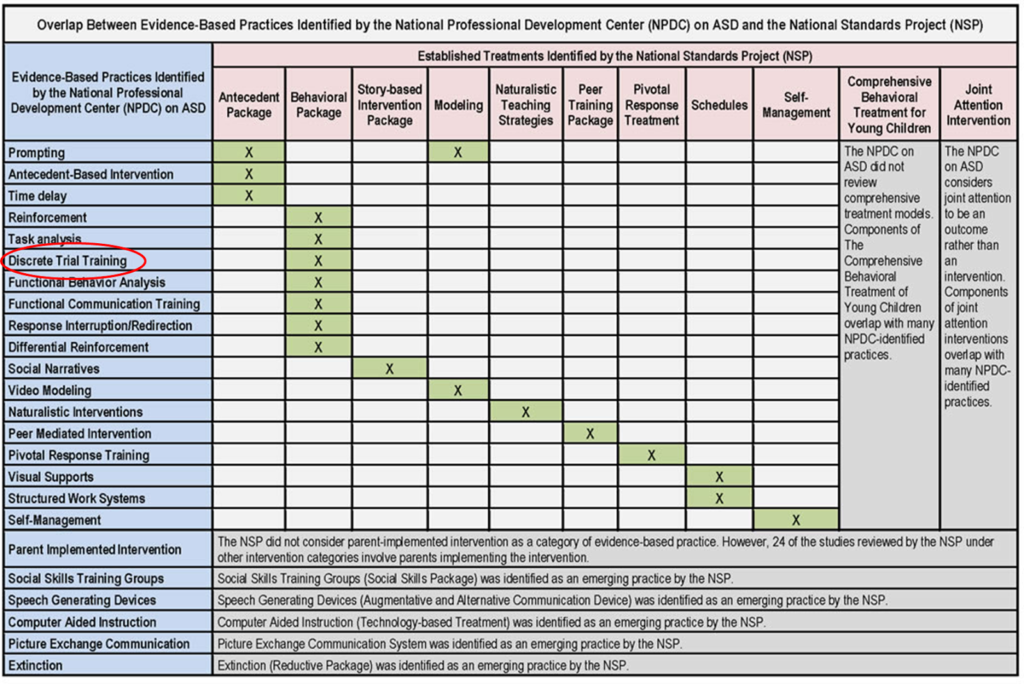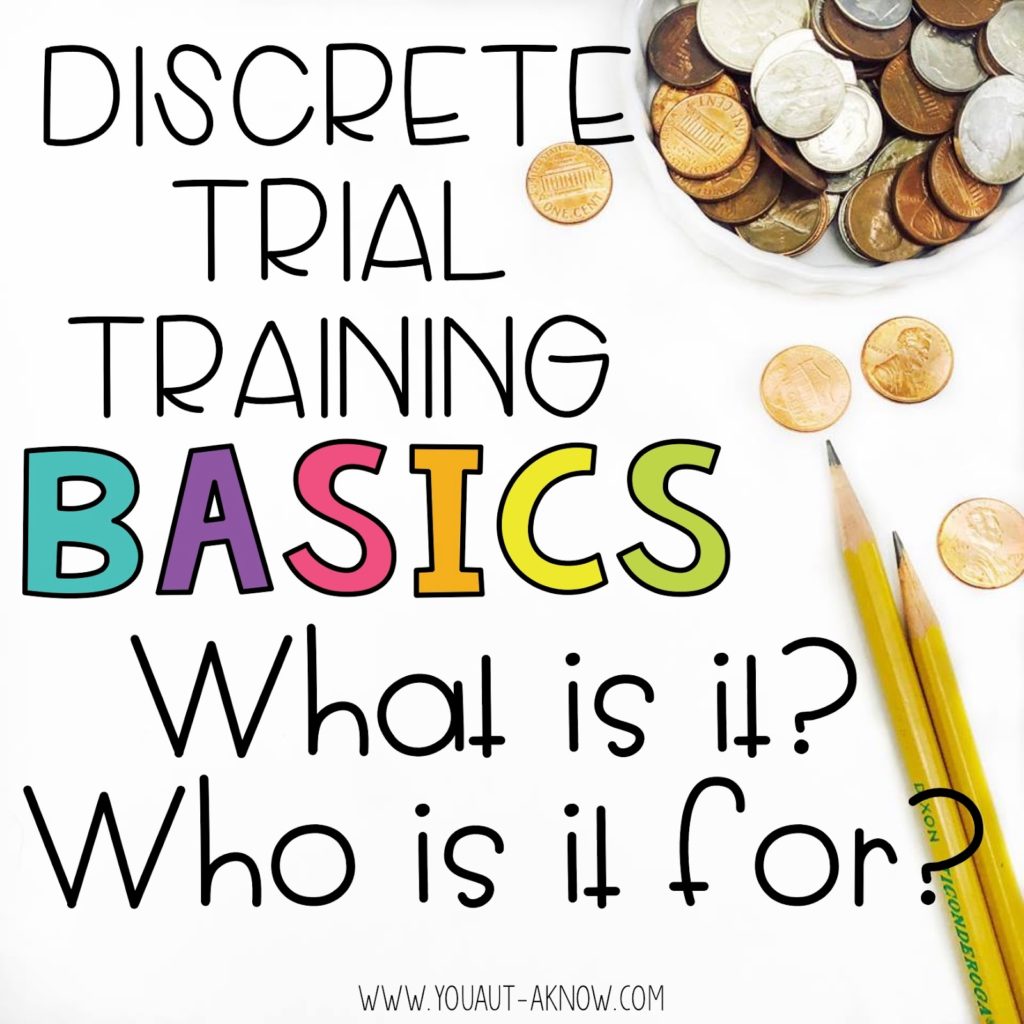
Discrete Trial Training is an evidence based practice used in many classrooms. I wanted to take the next few days to talk about DTT. Over the next few days, I will be answering the basic wh- questions about Discrete Trial Training and I will give you a quick peek at what it looks like in my classroom.
{Discrete Trial Basics: What Is Discrete Trial Training? Who is it for?}
{Discrete Trial Basics: Where does it take place? When does it occur?}
{Discrete Trial Basics: Why do we use DTT? How do I implement DTT?}
{Discrete Trial Basics: Organization Tips}
{Discrete Trial Products and A Giveaway!}
{Discrete Trial Basics: Awesome Reinforcers}
Today I want to discuss what Discrete Trial Training is and who Discrete Trial Training is for.
What is Discrete Trial Training?
Discrete Trial Training is a 1:1 teaching methodology used to teach skills for learners when there is only ONE correct response. For example, number names, letter names/sounds, sight words, colors, etc. It can be used to teach academic skills, behavior skills, language, and more. It incorporates reinforcement and repeated practice of skills in order for students to obtain mastery of skills taught. Data is taken very frequently (every trial) and is used to drive instruction.
Who is Discrete Trial Training For?
Discrete Trial Training can be used with students of many ages. It has been primarily researched for teaching students with Autism. I have used Discrete Trial Training with students who have different diagnoses and data has shown results with these students as well.
**Disclaimer: I am by no means an expert on Discrete Trial Training. I simply have researched and implemented with some training and coaching in my classroom. This is what I have learned over the past few years.








Hi! I found you on the Teaching Blog Addict. I love how you are blogging about evidence based practices. This is so important for new and experienced special education teachers alike. Thank you!
Warmly,
Jennifer
Astute Hoot: Tools for the Wise Teacher
http://www.astutehoot.com
Jennifer,
Thank you for the kind feedback! It is so important to base our instruction on EBPs.
Erin